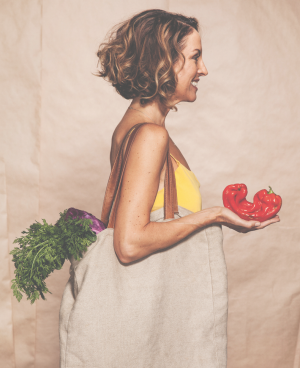"Look I don't want to sound Grinch-y, but there will be no presents under my tree this year," says Eco Warrior Princess blogger Jennifer Nini. "Actually, there will be no tree. I gave up decorations about nine years ago. That was the last time I bought into the idea of a commercial Christmas."
Nini is a tree-changer and sustainability advocate who grows organic fruit and veggies on her property near Gympie, Queensland. "I was living in Melbourne, and I remember how overwhelming the whole shopping thing was - you're fighting crowds, everything looks the same, none of it means anything. Your day always ends like that Seinfeld episode when they lose their cars."

Nini describes her approach the holiday season today as "minimalist, except when it comes to the food."
Predictably Ryan Nicodemus and Joshua Fields Millburn - AKA The Minimalists - don't buy into buying stuff either. But being human (and American), they once did. In a blog post on the subject, Nicodemus admits, "I did this for years: 'Here's a necktie or a pair of cufflinks or an oven mitt because today is December 25th. Now what did you get me?'"

These days the pair advise giving experiences or time rather than goods, and avoiding holiday sales (ergo, temptation). This is no longer a niche interest - TheMinimalists.com has 4 million readers.
Christmas, minimalist style used to be about aesthetics. A trendy decorating idea that involved spray-painting dead branches silver and wrapping your parcels in white paper with matching ribbon. It's now an increasingly popular lifestyle choice and a reaction against consumerism.
You might, like Sarah Wilson, think shopping sucks as much as sugar. Or you might be following "organising consultant" Marie Kondo's advice to strip back your cluttered existence to reduce stress. Perhaps, like Jonathan Levy, AKA Zero Waste Guy, you're worried about the amount of rubbish our disposable culture produces, and reckon the last thing landfill needs is a festive binge (individuals produce about 25 per cent more waste than usual at this time of year, from booze bottles and cans to packaging and food waste).
Then there's the problem of disposing of gifts that didn't hit the mark - when was the last time you got something you actually wanted, let alone needed, from Kris Kringle?

"The adults in my family don't give each other gifts you can wrap," says Wilson. "Instead we do things like pitch in and hire a holiday house together." They prefer experiences over objects. If there must be pressies, let them be reused, recycled or handmade.
"The kids do presents, but they make them," says Wilson. "It's much more fun than getting something from the shops. Last year, I got a pottery snail and I said, 'Oh that's very pretty,' and they said, 'It's a snail, aunty Sarah, because you need to slow down'."
Nini makes an exception for her mum: "Her love language is gift-giving. I think it's both generational and cultural. My parents moved here from the Philippines with very little. For them the acquisition of stuff symbolises security. For me, it's totally different."
Baby-boomers kicked the commercial Christmas up a notch, partly in reaction to the thriftiness of their parents, who lived through wartime rationing. But in 2016 we're increasingly questioning just how cool it is to over-shop.
"I grew up celebrating Christmas," says Jonathan Levy. "Like every child I looked forward to receiving gifts. I didn't think about where they came from, what impact they had on the environment, or if I needed them."
As an adult, he says he used to receive gifts from his folks that they thought he needed, "like new dress shirts for work." Now that he's zero waste, "I discourage people from giving me gifts that aren't functional or experiential. So, I would much rather my parents buy me tickets to an event or take me out for a special meal."
Friends who can't get their heads around Levy's anti-stuff crusade might consider purchasing him a "stainless steel tumbler or straws – any item that's normally single-use," he says. Hopefully they might walk to the store, and bring their own cloth bag.
Thanks to the popularity of online shopping, "there is way more packaging entering the waste stream than ever," Levy points out. "Giving a gift just for the sake of it is a great way to create unnecessary waste and packaging. Give gifts with meaning. Gifts that are intended to last long time."
Nini suggests giving gifts you can eat. Wilson says as a host you can make gifts of leftovers, perhaps with a reusable glass container for storage. Might that come across a little, shall we say, frugal?
"Good! Frugal's cool! I'm on a mission to make frugal sexy."
Follow Clare on Instagram and Twitter @mrspress
